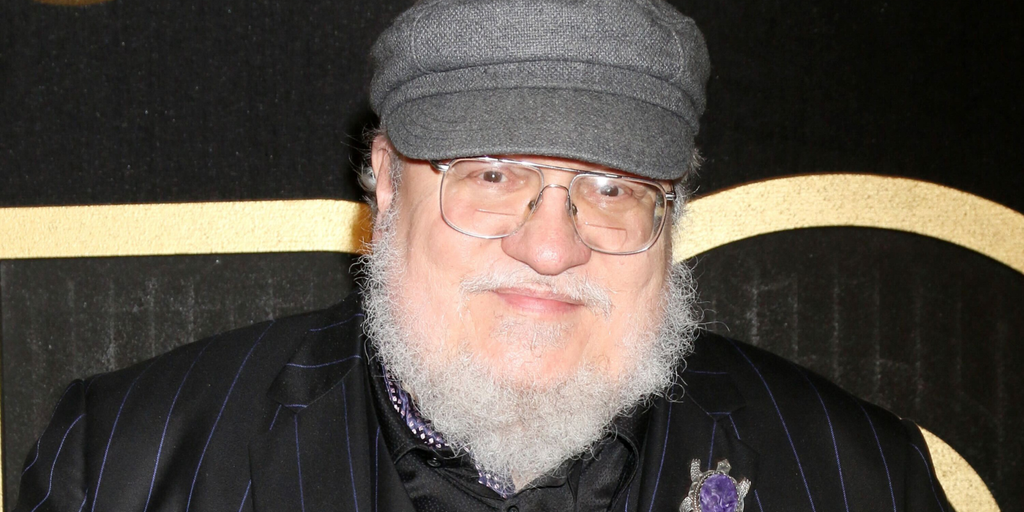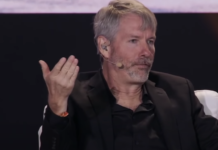
Looking to curb the unauthorized use of copyrighted works, the Authors Guild and several prominent authors are suing ChatGPT creator OpenAI, alleging that the company fed their copyrighted works into its large language model as training data.
Filed in the Southern District of New York on Tuesday, the class action lawsuit—which includes 13 authors and the Authors Guild—highlighted instances of ChatGPT being used to impersonate specific writers and create “low quality” ebooks. Authors joining the lawsuit include Game of Thrones and House of the Dragon creator George R.R. Martin, John Grisham, Jonathan Franzen, Jodi Picoult, Michael Connelly, Elin Hilderbrand, and Christina Baker Kline.
“Unfairly, and perversely, without plaintiffs’ copyrighted works on which to ‘train’ their LLMs, defendants would have no commercial product with which to damage—if not usurp—the market for these professional authors’ works,” attorneys for the Authors Guild said in the lawsuit, Authors Guild vs OpenAI. “Defendants’ willful copying thus makes plaintiffs’ works into engines of their own destruction.”
In the case of Martin, the lawsuit said ChatGPT was used to create poor imitations of the author’s long awaited sequels to his massively popular book series.
“When prompted, ChatGPT generated an infringing, unauthorized, and detailed outline for an alternate sequel to A Clash of Kings, one of the Martin infringed works, and titled the infringing and unauthorized derivative [titled] A Dance With Shadows, using the same characters from Martin’s existing books in the series A Song of Ice and Fire,” the attorneys wrote.
According to court documents, attorneys for the Authors Guild also cite an incident earlier this year when a developer named Liam Swayne used ChatGPT to create AI-generated endings to Martin’s long-running Song of Ice and Fire book series.
According to the lawsuit, the plaintiffs are seeking damages for the lost opportunity to license their works and for “the market usurpation defendants have enabled”—and a permanent injunction to stop OpenAI from further using the authors’ work.
“This case is merely the beginning of our battle to defend authors from theft by OpenAI and other generative AI,” Authors Guild president Maya Shanbhag Lang said in a statement shared with Decrypt. “As the oldest and largest organization of writers, with nearly 14,000 members, the Guild is uniquely positioned to represent authors’ rights.”
Representatives for authors named in the lawsuit have not yet responded to Decrypt’s request for comment.
For its part, OpenAI acknowledged that “creative professionals around the world use ChatGPT as a part of their creative process.” Without addressing whether its LLM ingested the works in question, the company told Decrypt in a prepared statement, “We respect the rights of writers and authors, and believe they should benefit from AI technology.”
“We’re having productive conversations with many creators around the world, including the Authors Guild, and have been working cooperatively to understand and discuss their concerns about AI,” OpenAI added. “We’re optimistic we will continue to find mutually beneficial ways to work together to help people utilize new technology in a rich content ecosystem.”
In August, journalist, author, and professor Jane Friedman took to social media to complain about Amazon’s refusal to remove books, allegedly written by AI, that falsely claimed to have been written by her. The company said that Amazon’s denial was partly due to Friedman not holding the trademark on her name. Seeing Friedman’s plight, the Authors Guild said it would advocate on her behalf.
In July, comedian Sarah Silverman and authors Christopher Golden and Richard Kadrey sued OpenAI in a San Francisco court, claiming their books were “ingested” to train ChatGPT and Meta’s LLama without permission.
While one of many concerns in the ongoing Writer’s Guild of America (not to be confused with the Authors’ Guild) strike, artificial intelligence remains a critical issue in the organization’s negotiations with the Alliance of Motion Picture and Television Producers.
“The [allegations] illustrate certain specific ways in which OpenAI’s LLM “training” has infringed Plaintiffs’ copyrights and has injured or may injure the value of their works,” Authors Guild attorneys said. “But OpenAI has engaged in a systematic course of mass-scale copyright infringement that violates the rights of all working fiction writers and their copyright holders equally, and threatens them with similar, if not identical, harm.”
Editor’s note: this article has been updated to include a response from OpenAI.








